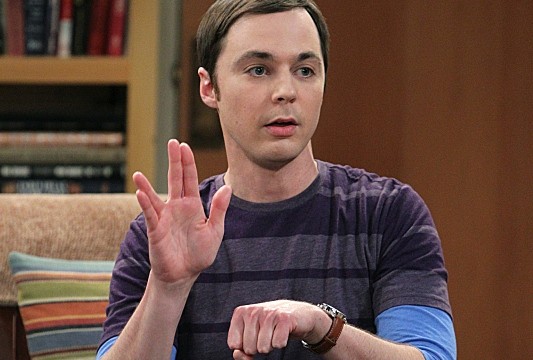On The Screen And On The Spectrum is a recurring feature where I examine pop culture depictions of individuals with Autism, Asperger’s or other developmental disabilities similar to Autism.
I was talking to a good friend of mine, who happens to be both on the Autistic spectrum and a major fan of pop culture too, on Facebook, and this chum of mine brought up a great point about the majority of on-screen depictions of people on the Autistic spectrum; many Autistic individuals in film and television are blissfully unaware that they even have Autism or exhibit Autistic tendencies. Such personalities are usually too wrapped up in singular interests to find time to pay much mind to the environment and people around them. While there are plenty of figures in the real world on the Autistic spectrum who are like that, me and my friend were wistful in hoping there’d be more Autistic people in films/TV like us who were acutely aware of their condition and the difficulties stemming from Autism they were grappling with.
Sheldon Cooper (Jim Parsons), a principal player on the American TV show The Big Bang Theory, is one such kind of fictitious character who is unaware of how his developmental condition affects those around him. Sheldon is one of those classic on-screen characters whose clearly exhibiting traits associated with Autism (WebMD mentions two behavioral elements Sheldon frequently displays, specifically a strict adherence to routine and a narrow focus when it comes to interests and hobbies), but the program never specifically diagnosed what the character is going through so they can have more freedom to do whatever what they want with the fictitious figure.
In my opinion, it would be to the shows great benefit if they had stuck Sheldon Cooper in one specific developmental disability, as the flexibility afforded by not pinning him specifically to Autism means his behavioral tendencies change from episode to episode. For instance, his knowledge of social interactions seems to fluctuate depending on what kind of slipshod gag the writers want him to drop in a certain episode. This leaves Sheldon Cooper feeling lacking as a whole character, and rarely, if ever, are the jokes he drops funny enough to warrant such inconsistent writing.
Even more disturbing than the anemic writing that persists regarding Sheldon on the show is the impact he’s had on the general perception of Autistic people in general society. Thanks to the programs aforementioned failure to assign Sheldon a specific developmental disorder from which his “quirky” tendencies stem from, many just assume he has Asperger’s since, after all, the show doesn’t say otherwise. While the writers purport that, and I’m quoting them directly here, the actions of the character weren’t directly inspired by Asperger’s but rather by tendencies that struck them as “Sheldony”, it’s not hard to see why casual viewers would come to the conclusion that Jim Parsons character has Asperger’s Syndrome thanks to how Sheldon displays many specific characteristics notable associated with individuals with Asperger’s.
Because Sheldon Cooper is the only frame of reference for Asperger’s for many people, I’ve had to endure countless amounts of times where I was told I was “…just like Sheldon Cooper.”. It wasn’t meant in a “mean” way, but Sheldon is such a narrow and mean-spirited stereotype of many traits associated with Asperger’s, being compared to this character becomes extremely irritating in no time flat. But even more aggravating than that personal anecdote is the fact that The Big Bang Theory resorts to borderline bullying for many instances of so-called “humor”, with numerous jokes on the show boiling down to laughing at Sheldon because he’s different from his peers. Instead of using a character exhibit traits traditionally associated with Asperger’s to explore hefty dramatic material or create unique gags, the writers on The Big Bang Theory settle for the Adam Sandler school of humor, where human beings that are even slightly different from the norm should be relentlessly and solely mocked.
As I said in my last On The Screen And On The Spectrum column, the tide is turning for on-screen portrayals of Autistic characters. Hell, compared to Michael Berry in The Big Short, Sheldon Cooper already feels like an archaic relic from another age, something our descendants will look back on and, with a bewildered expression on their faces, ask “Was this really something people thought was OK?” Hell, that’s how I feel about Sheldon Cooper now! Yes, despite being one of the most well-known fictitious characters ever to exhibit notable traits associated with Asperger’s, Sheldon Cooper is a mess of a character writing-wise, even when taken out of the context of being judged as a nuanced depiction of a human being on the Autistic spectrum.

